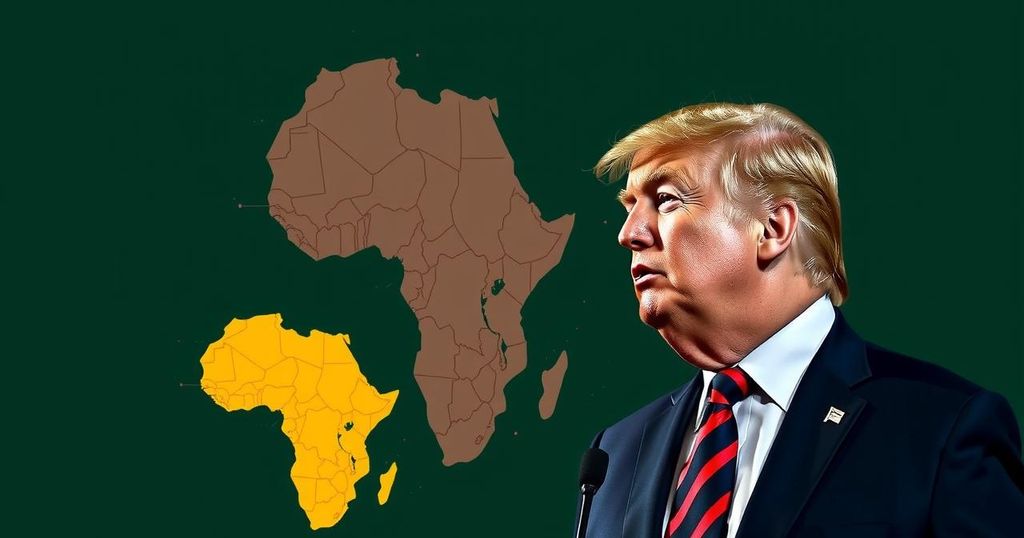The prospect of Donald Trump’s second administration carries implications for U.S.-Africa relations characterized by transactional diplomacy. While this might yield immediate results for certain leaders, it raises significant concerns regarding governance and human rights. Trump’s past engagement strategies reveal a tendency to prioritize expediency over established diplomatic processes, complicating efforts for peace and stability in conflict-prone regions within Africa.
The future of U.S.-Africa relations under President-elect Donald Trump’s potential second administration appears to present both opportunities and challenges. Trump’s inclination towards transactional politics rather than traditional diplomacy, as evidenced by past actions, suggests a deviation from the Obama administration’s approach towards multilateral cooperation with Africa. Despite previous attempts to enhance peacekeeping efforts through frameworks like the African peace and security architecture, many initiatives faltered after Trump’s first term commenced. While certain African leaders appreciated Trump’s directness and results-oriented tactics, his apparent disregard for established principles of human rights and democratic governance raises concerns. From Trump’s prior interactions, it is evident that his administration might continue to prioritize relationships with autocratic leaders and engage in deal-making focused on strategic interests rather than long-standing diplomatic values. Examples include mediating conflicts based on expediency, as seen in the context of U.S.-Egypt relations regarding the Nile, and recognizing Morocco’s claims over Western Sahara in exchange for agreement on Israel. While Africa experiences dire humanitarian crises, particularly in Sudan and Ethiopia, Trump’s transactional approach does not prioritize the necessary frameworks for sustainable peace or democratic progress. Furthermore, the volatility of existing alliances, driven by regional power dynamics, poses substantial risks for conflict escalation amidst a U.S. policy void.
Donald Trump’s administration is characterized by a departure from traditional diplomatic practices, favoring classic transactional interactions that often prioritize immediate gains over long-term stability. Under President Obama, the U.S. cultivated a multilateral approach with the African Union (AU) aimed at enhancing the continent’s capacity for peacekeeping and conflict resolution. However, the onset of Trump’s presidency resulted in the discontinuation of new peacekeeping initiatives and a retrenchment of U.S. involvement in African conflicts. As Trump’s potential second term approaches, uncertainties loom regarding the U.S. foreign policy framework towards Africa, especially amidst ongoing crises that require collaborative and principled diplomatic interventions. Key issues affecting the continent, including conflict in Sudan and tensions in the Horn of Africa, highlight the challenges of maintaining peace when powerful leaders manipulate circumstances for political leverage. Simultaneously, African countries are grappling with external influences, including China’s growing presence and Russia’s increasing military collaborations, which complicate the geopolitical landscape. Understanding these foundational aspects is essential for assessing Trump’s potential impact on African stability, governance, and human rights in the years to come.
In summary, while President-elect Donald Trump’s second administration may present opportunities for certain African leaders to engage in more direct negotiations and pragmatic solutions, the risks posed to governance, stability, and human rights are significant. His transactional approach could exacerbate existing conflicts, undermine institutional responses to crises, and disregard essential cooperative mechanisms that promote peace. African leaders must navigate a complex geopolitical environment and consider how U.S. policy evolution under Trump may influence national and regional stability moving forward.
Original Source: www.bbc.com






